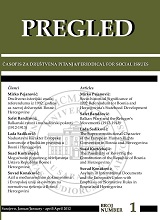Nadustavni karakter Evropske konvencije o ljudskim pravima u Bosni i Hercegovini
The Supra-constitutional Character of the European Human Rights Convention in Bosnia and Herzegovina
Author(s): Lada SadikovićSubject(s): Law, Constitution, Jurisprudence
Published by: Univerzitet u Sarajevu
Keywords: Constitution of Bosnia and Herzegovina; Human Rights; European Convention on Human Rights; discrimination; citizen; democracy
Summary/Abstract: Unlike other European states that have incorporated human rights and fundamental freedoms as stipulated in the European Convention on Human Rights (ECHR) into their constitutional and legal systems through its ratification in their national parliaments, Bosnia and Herzegovina (BiH) accepted the ECHR when it signed the Framework Agreement for Peace in BiH. In other words, BiH has accepted the human rights and freedoms contained in the ECHR and its accompanying protocols not through their ratification upon accession to the Council of Europe – as it is the case with all the countries of Europe, but through an international peace agreement – the Framework Agreement for Peace in BiH with the Constitution of the country as one of annexes (Annex 4) out of the total of 11 annexes attached to this Agreement. Therefore Bosnia and Herzegovina is a unique case, not only because it accepted the ECHR via Dayton Peace Agreement (DPA), but also because the ECHR has bestowed upon it supra-constitutional character. By including the provision that prescribes not only its direct application, but – more importantly – its primacy over all other law in BiH, individuals are promoted as beneficiaries of all human rights and fundamental freedoms, while the democratic state is promoted as the fundamental guarantor of the protection of human rights and fundamental freedoms.
Journal: PREGLED - časopis za društvena pitanja
- Issue Year: LIII/2012
- Issue No: 1
- Page Range: 57-72
- Page Count: 16
- Language: Bosnian

